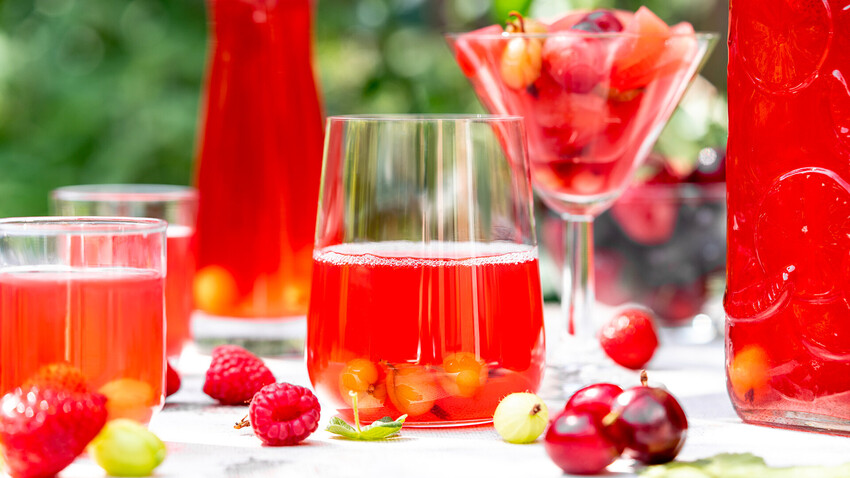
This sweet drink made from fruit and berries can be served hot or cold.
Yulia MulinoBefore the 18th century, Russia had a popular drink that was made from dried fruits, berries and herbs, and which was called vzvar, a word that derives from zavarit (tobrew). Usually vzvar was made on Christmas Eve, and sometimes grits were added to make the drink more nutritious. Later, vzvar gave way to compote, which can be boiled quicker and more easily.
The modern form of compote was introduced to Russia in the 18th century by French chefs. Originally, it was more of a desert than a drink. Compote was served with drinks and ice cream; but it didn’t keep well, so the Russians, with their love of conserving food in jars, began adding more sugar and water.
Modern Russian cuisine has several versions of compote. In winter, the more popular version is a compote made with dried fruit that’s dark in color due to the prunes. However, it can also be made with dried apples, apricots, figs, and raisins. I remember this compote from lunches in kindergarten, school, and university.
During the summer dacha season, the most popular types of compote are made from small apples, plums, cherries, and pears. Often these plants provide an abundant harvest, but fresh fruits tend to have a sour taste. However, when you add sugar to these compotes they reveal the full extent of their flavor.

Among the most popular berries for summer’s compote are red and black currants, strawberries, gooseberries, cherries, and raspberries. Even today, I consider homemade berry compote as the ultimate taste of summer.
I used to pick ripe berries from the bushes in the garden, and then my grandmother or mother would make a sweet treat. One great feature about compote is that you can boil any of your favorite fruits or berries in water with sugar, and you’ll get a different flavor every time.
The main thing you have to remember is that some ingredients take longer to boil, such as apple and rhubarb, which I use in my recipe. Berries, in contrast, need to be boiled for only a few minutes. A minimal amount of boiling helps to preserve the vitamins and nutrients, while the berries release all their flavor and aroma into the drink.
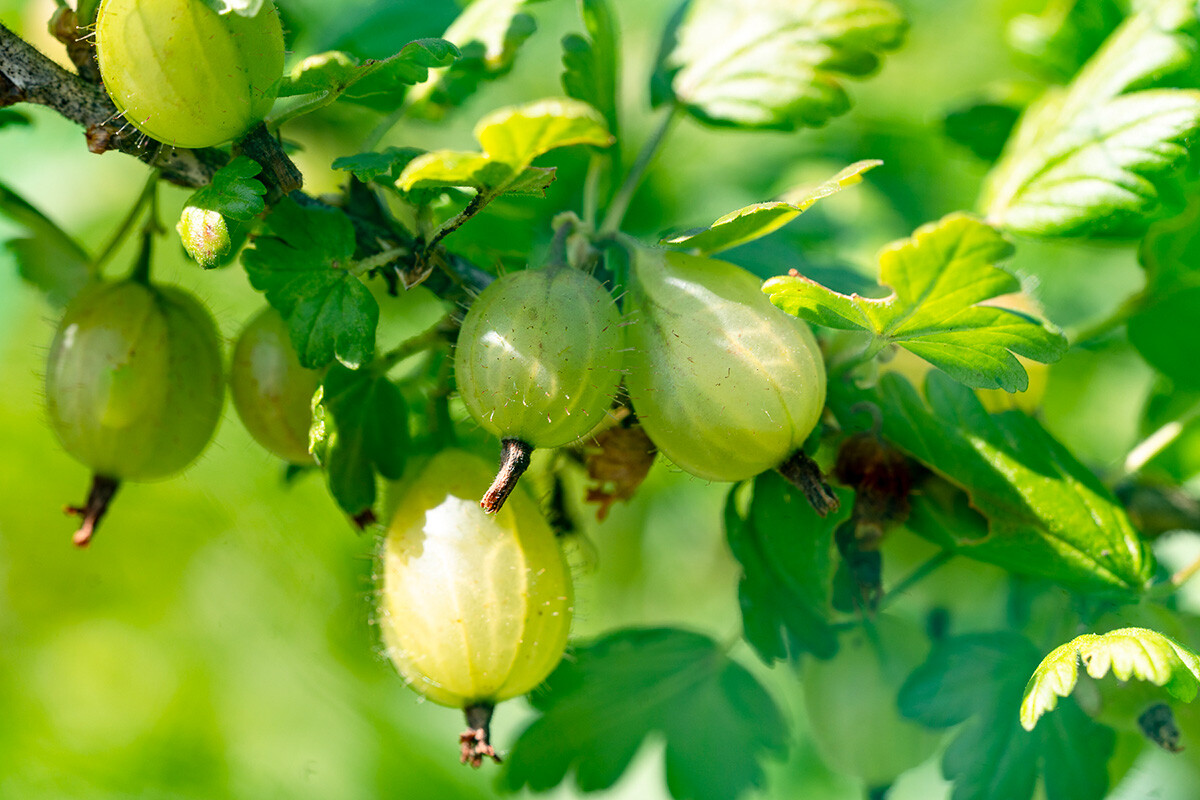
I also prefer to use less sugar in my compote, which is why I boil the hardest ingredients (apple peels and rhubarb) with sugar for 20 minutes, which results in an inverted sugar syrup. Then, I put the berries in this syrup, which is why I don't overdose with the sugar.
The result is a delicious, refreshing drink that has a robust taste and lots of vitamins. Compote can also be served as a dessert because the berries and fruit retain tremendous flavor.

1. Wash and peel the apples and remove the core. We will need the peels and core for the syrup. Place the apple peels and core in a saucepan.
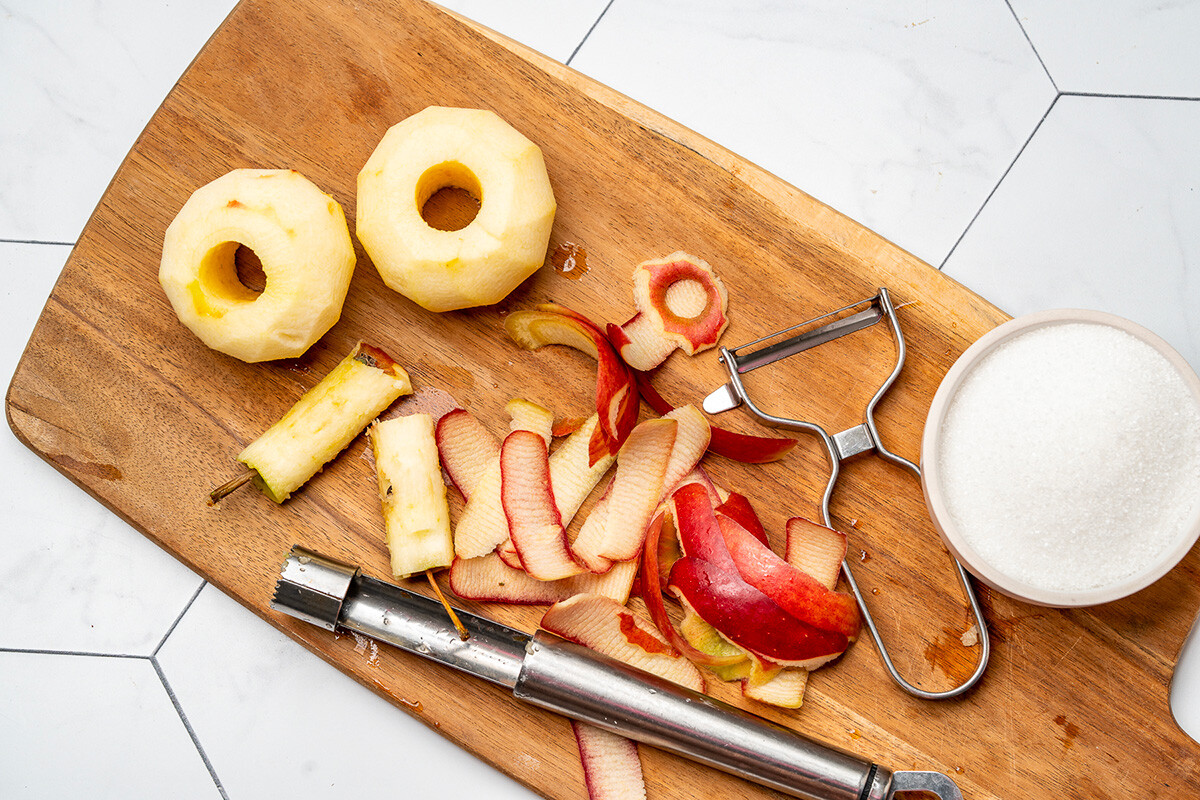
2. Cut the rhubarb into large chunks and place them in the pot.
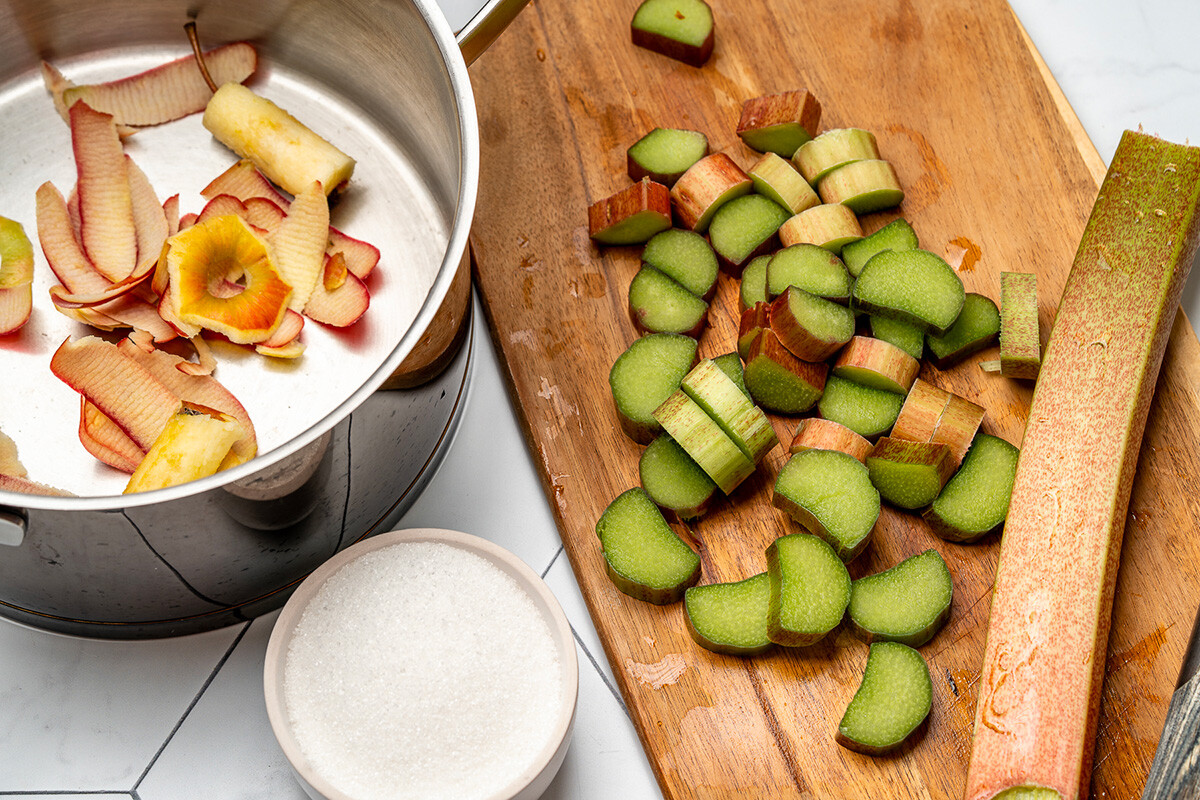
3. Add sugar.
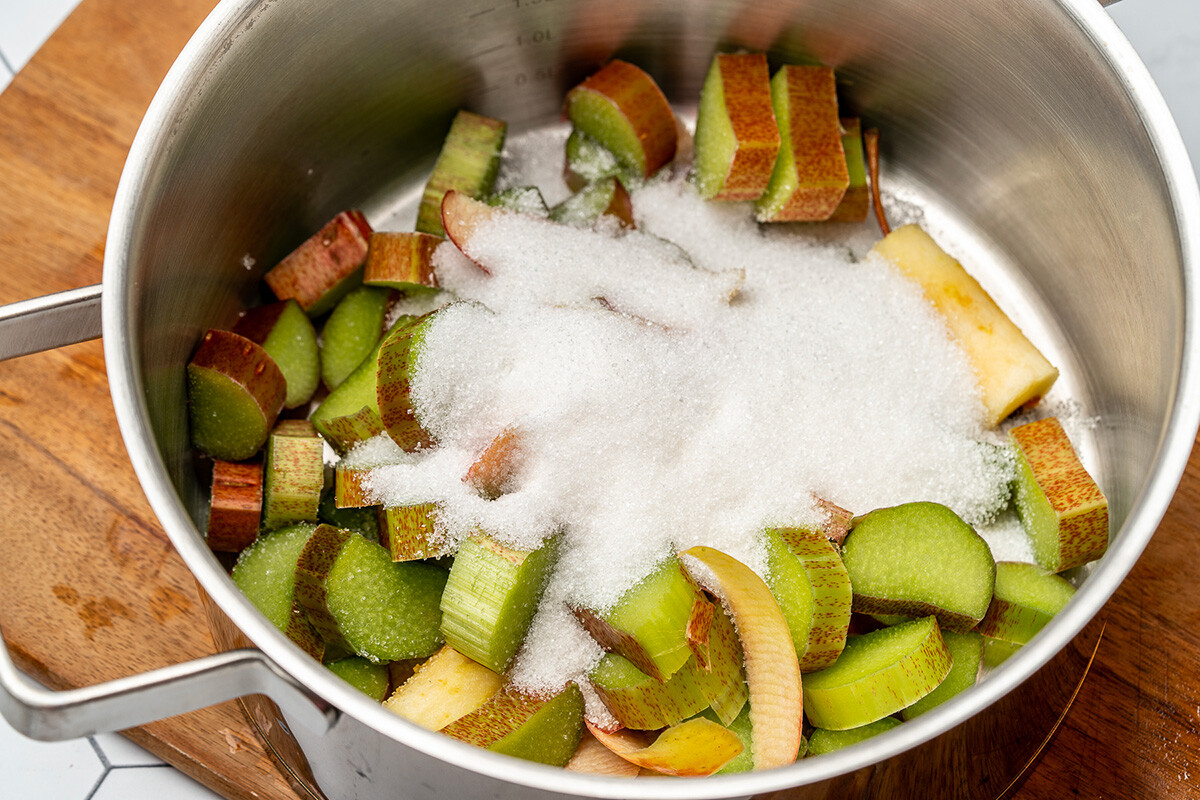
4. Pour boiling water over them.
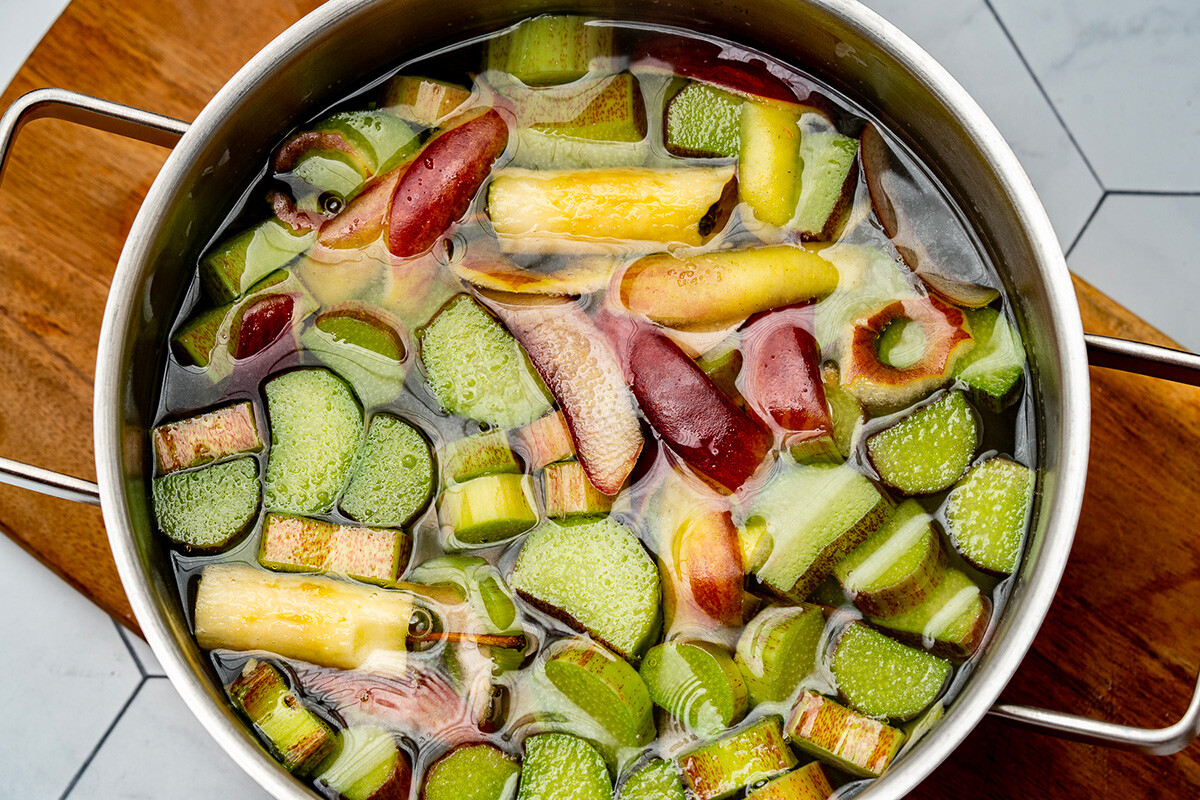
5. Allow to boil for about 20 minutes. You should get a rich, sweet syrup.

6. While the syrup boils, prepare the fruit and berries. Cut the apples into slices.
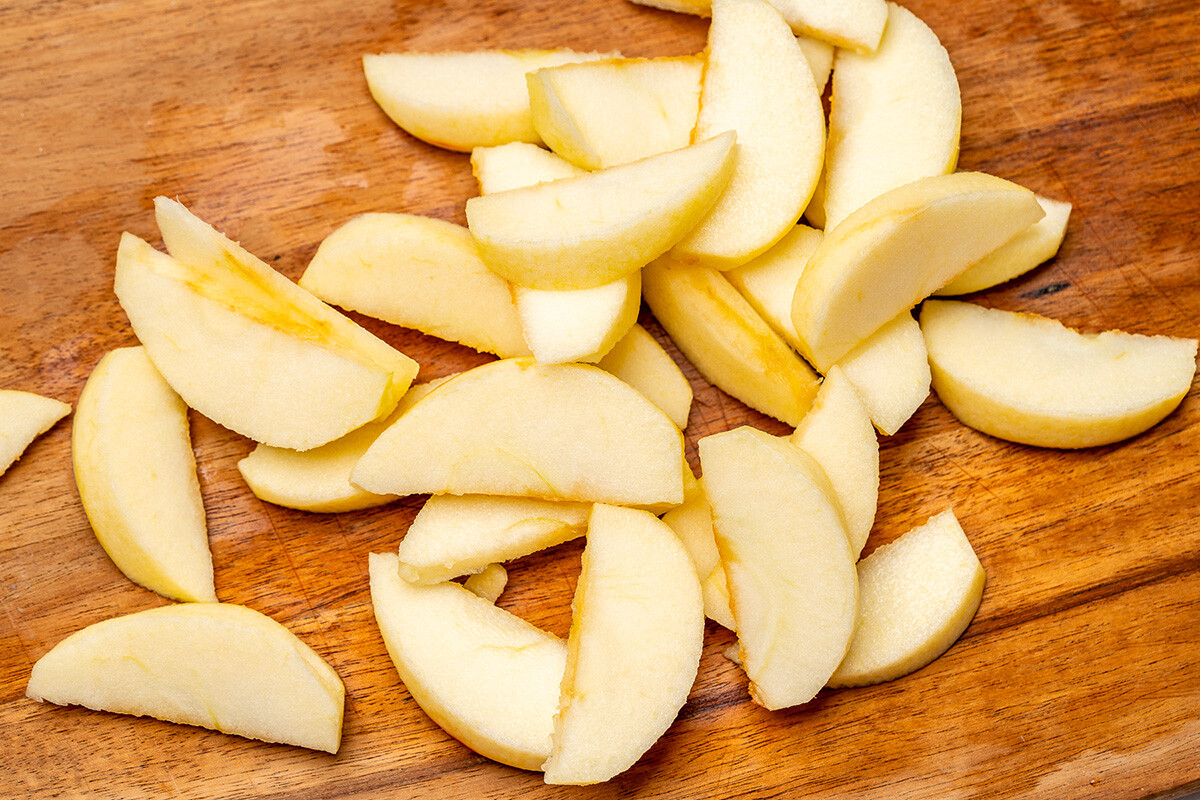
7. Wash and peel the strawberries.
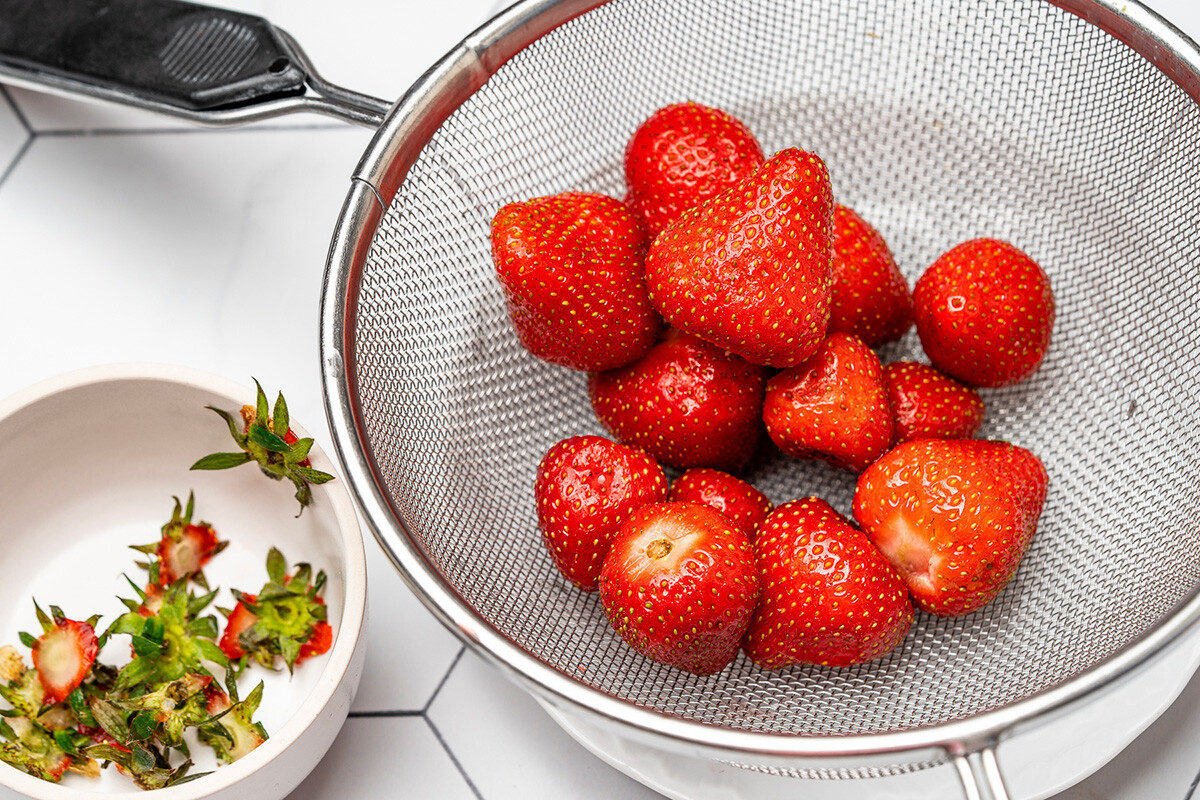
8. I have leftover frozen raspberries from last year; the new ones growing in the garden aren’t yet ripe. I add them to the berries.
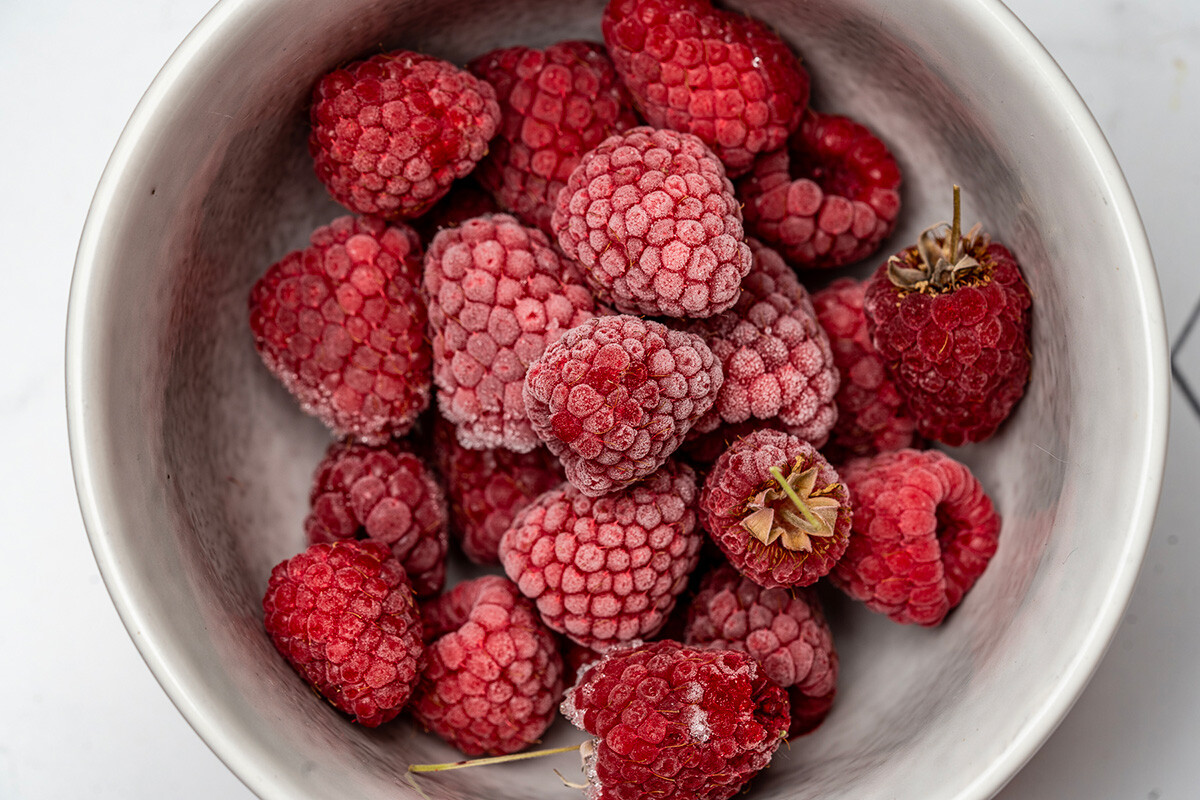
9. Prepare the rest of the berries.
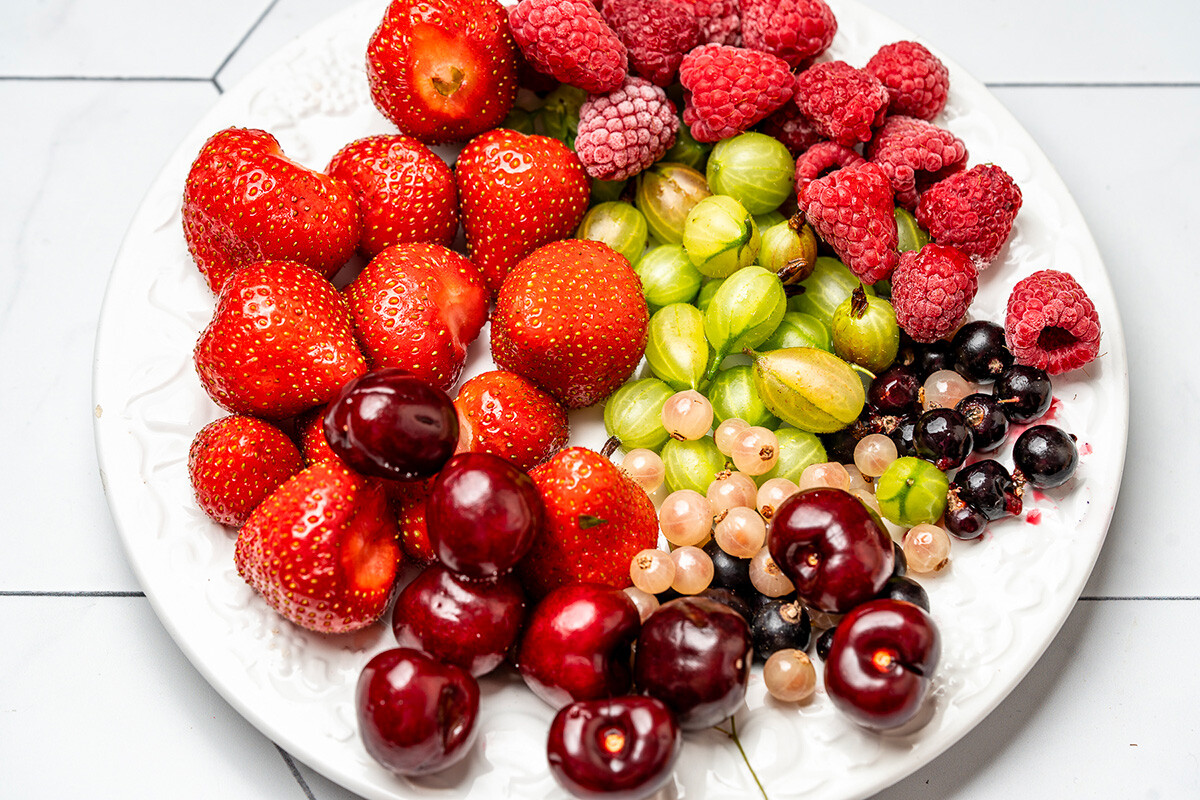
10. Strain the liquid through a sieve.
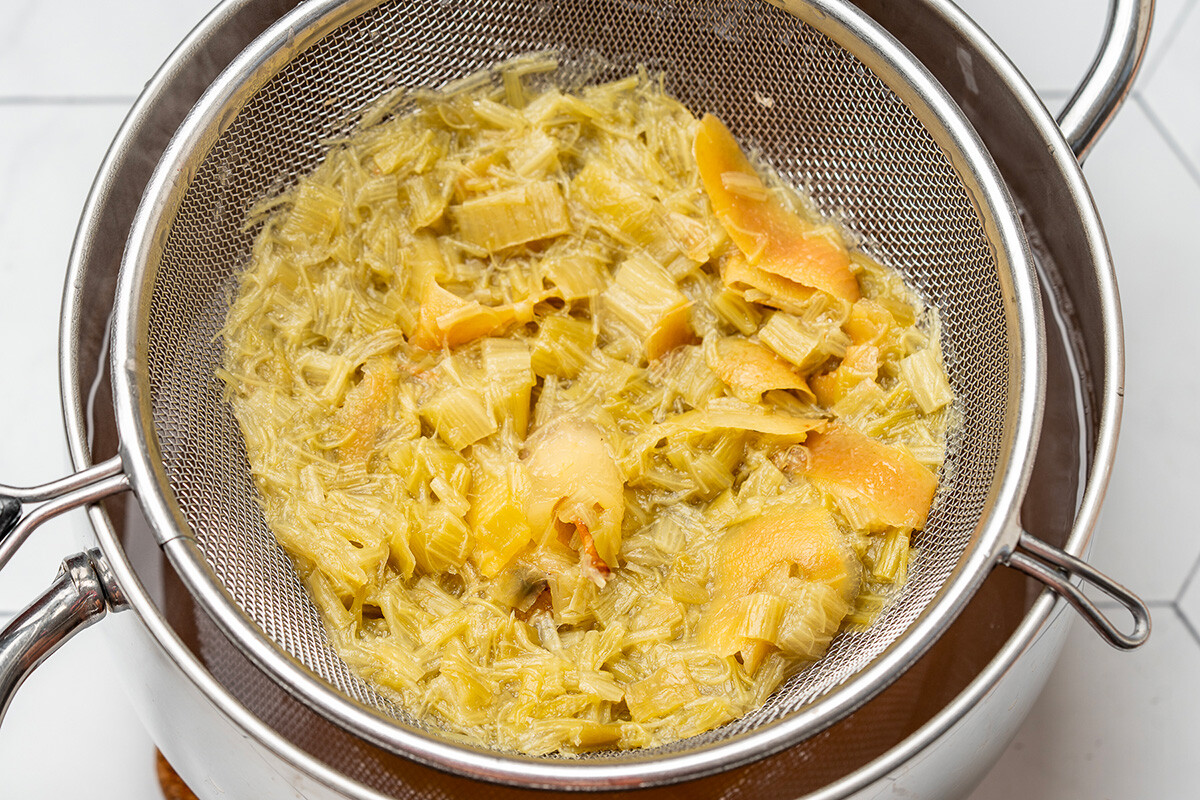
11. Add the apples and gooseberries, and simmer in the syrup for 3 minutes.
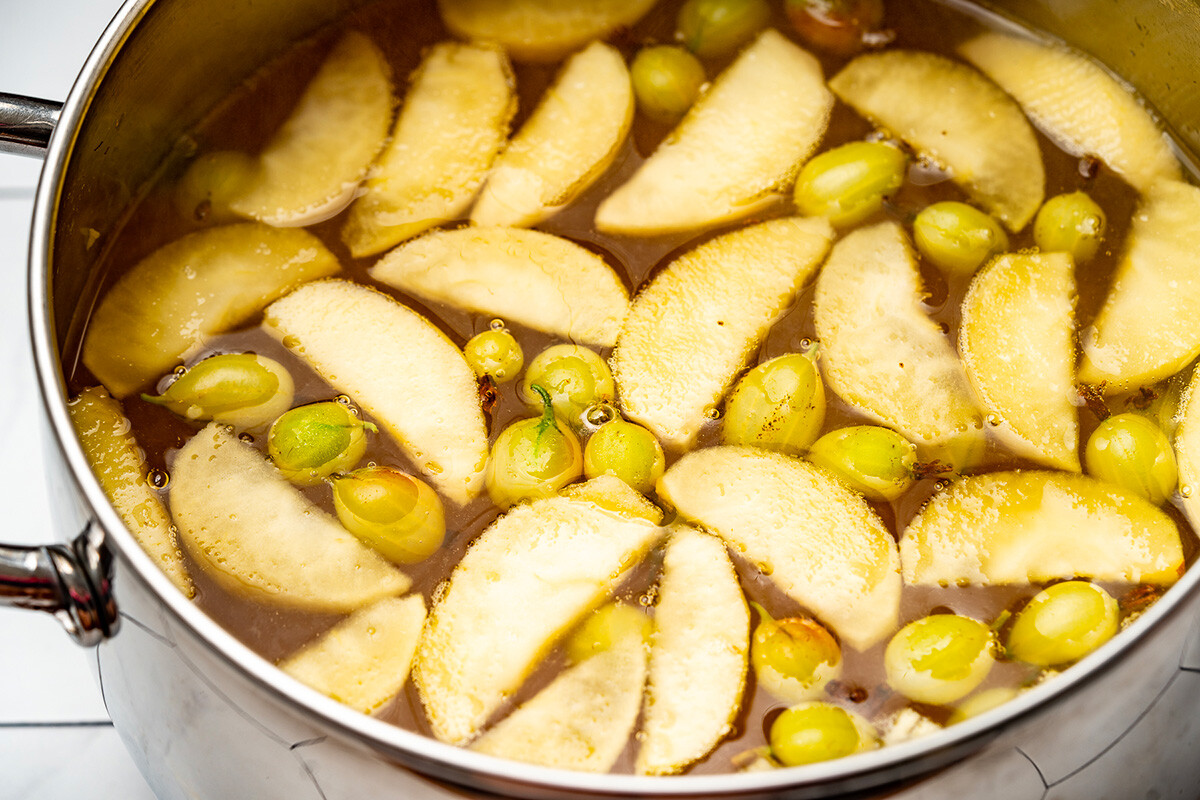
12. Turn off the gas and pour the rest of the berries into the hot drink.
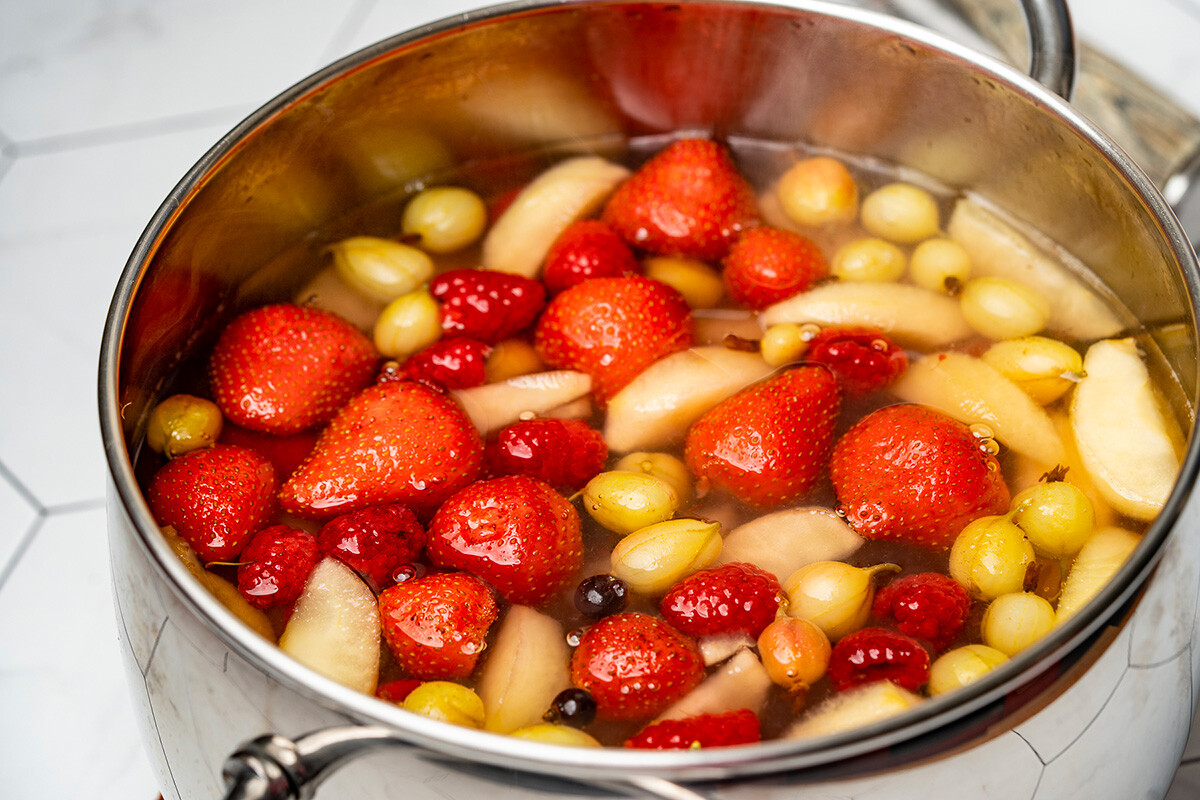
13. Cover with the lid and leave until it cools. When you open the lid, you will feel all the flavor of the summer berries.
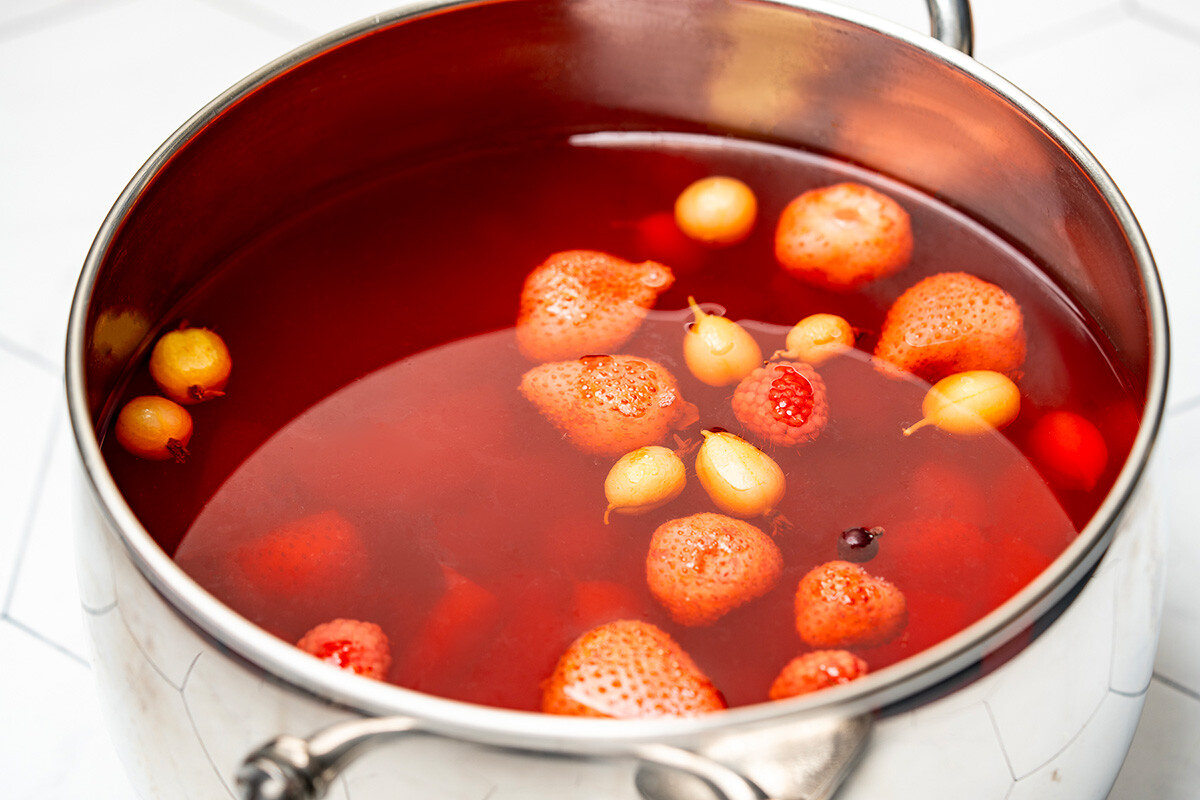
14. Pour the compote into a jug and put it in the fridge to cool, or go ahead and taste it.
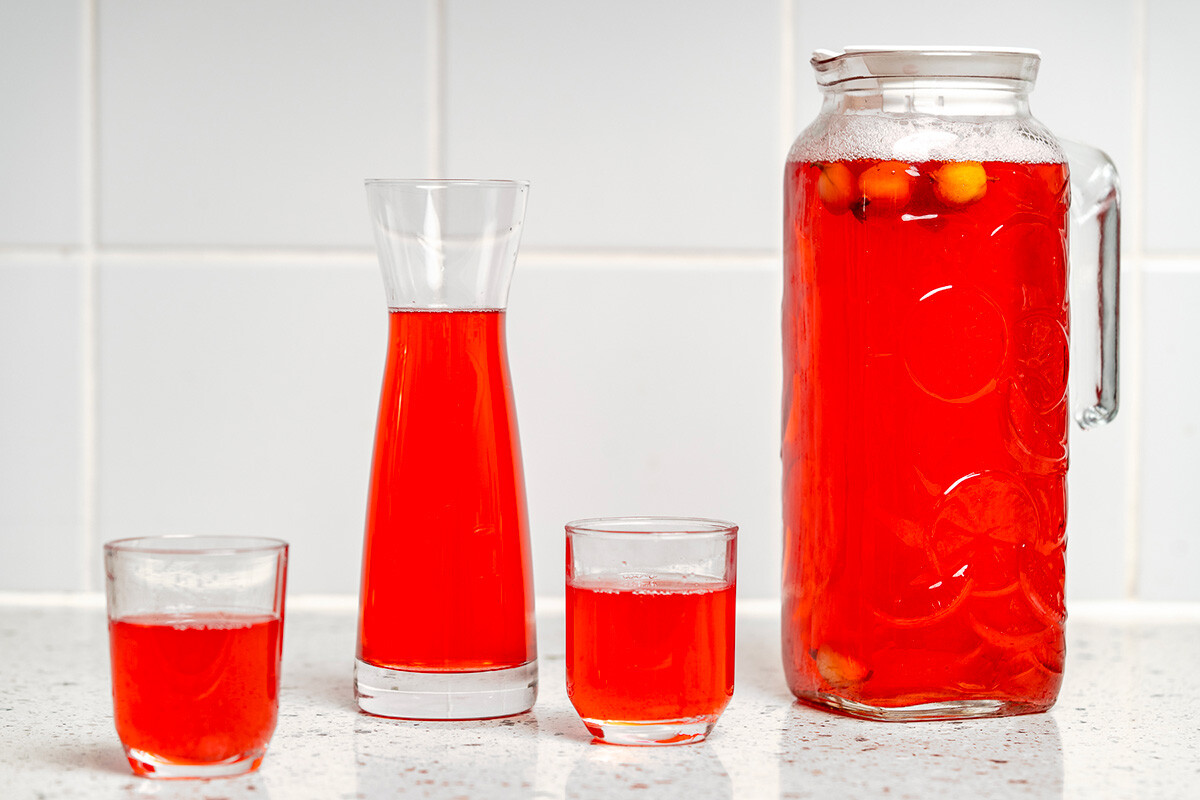
15. Enjoy compote on a nice summer day outdoors or at home.
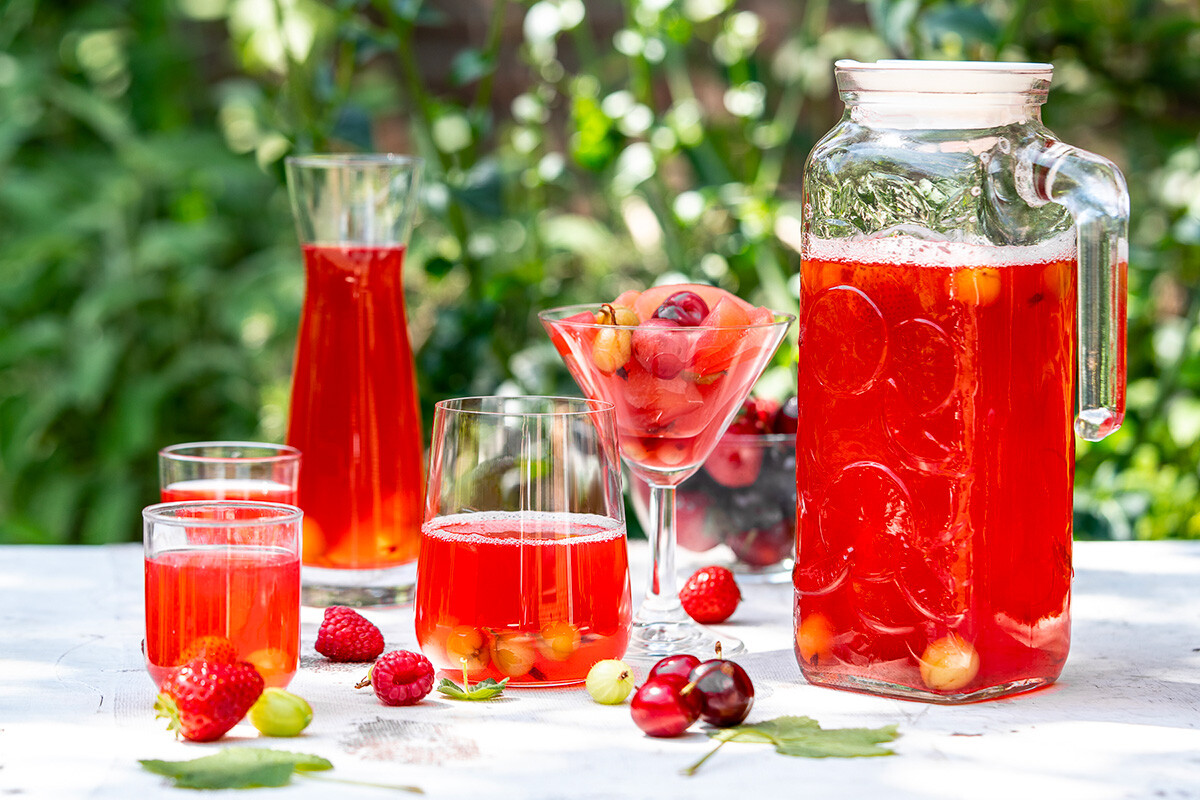
16. Don't forget the fruit - it's all delicious!
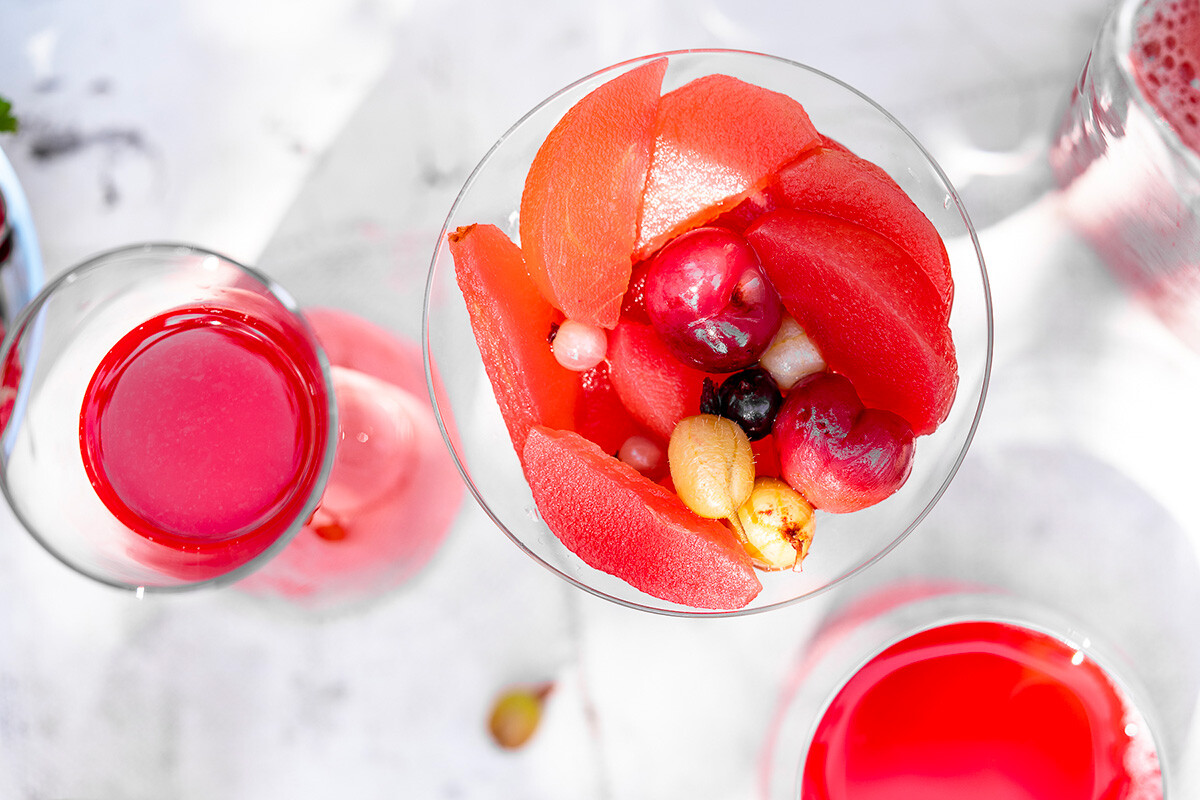
Dear readers,
Our website and social media accounts are under threat of being restricted or banned, due to the current circumstances. So, to keep up with our latest content, simply do the following:
Subscribe to our Telegram channels: Russia Beyond and The Russian Kitchen
Subscribe to our weekly email newsletter
Enable push notifications on our website
Install a VPN service on your computer and/or phone to have access to our website, even if it is blocked in your country
If using any of Russia Beyond's content, partly or in full, always provide an active hyperlink to the original material.
Subscribe
to our newsletter!
Get the week's best stories straight to your inbox